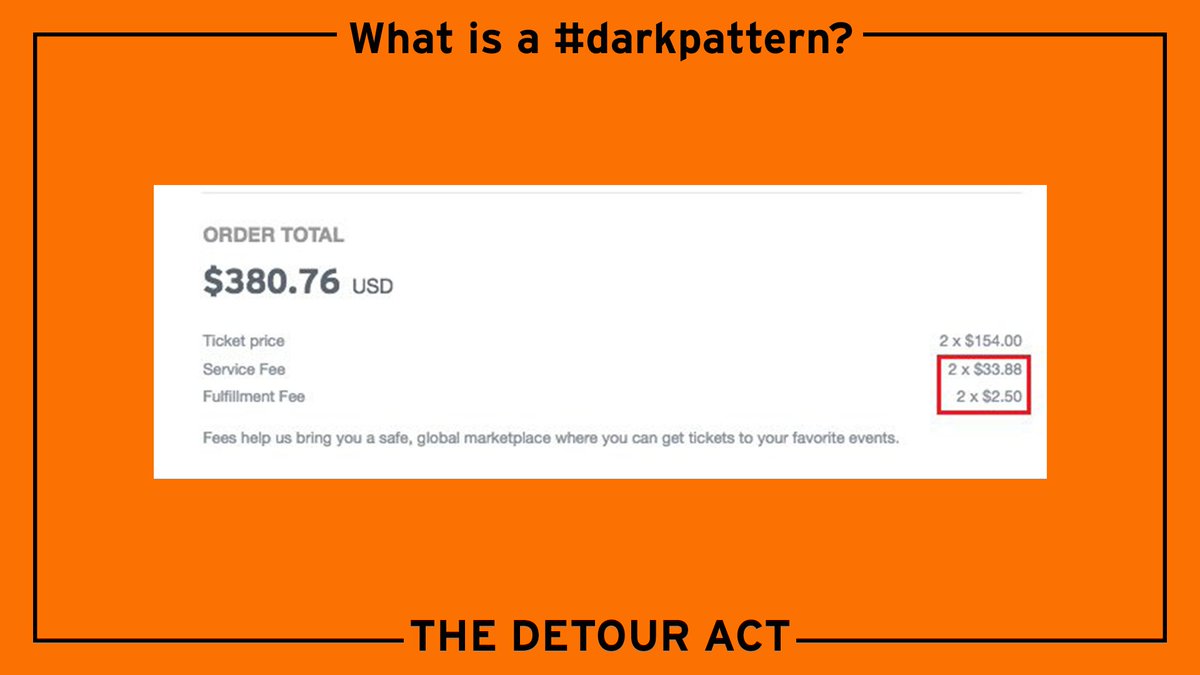Chances are you’ve seen a #darkpattern online – a deceptive internet mechanism used to trap you into clicking, buying, or signing up for something you don’t want. I’m reintroducing a bill to prevent these with @SenatorFischer, @amyklobuchar, and @SenatorJohnThune.
So what exactly is a #darkpattern? They range from merely annoying to actively insidious. I’ll take you through it. First, ever had a confusing list of checkboxes that tried to con you into signing up for an email list? That’s one. 

Or ever been ready to check out and then all of a sudden there’s a range of bogus hidden fees added? Again, a #darkpattern 

This #darkpattern really bugs me – can you spot the legitimate download link among all these deceptive ads? I can’t. 

Or one of the most common – have you ever been overwhelmed by popups tricking you into signing up for never ending newsletters? That’s a #darkpattern, too. 

A lot of these #darkpatterns are merely annoying – but some contain darker implications, like these checkboxes that obscure important privacy permissions. I think you shouldn’t have to struggle to see what data you’re giving away. 

These deceptions go beyond individual interfaces – manipulation is built into user agreements, too. For years, Facebook has been studying how you are emotionally affected by your feed. It's wrong that they can be doing psychological tests on you without your explicit consent. 

The DETOUR Act would change that by requiring companies like Facebook to get your permission before including you in any psychological test – and prevent them from burying that permission in their general service agreement.
Finally, we know that platforms are not being held accountable for designing to target kids. DETOUR would take the first step towards changing that, making it illegal to use addictive techniques on children under 13.
Ultimately, the goals of the DETOUR Act are simple: instill more transparency in a deceptive online environment, protect kids from addiction, and start holding big tech accountable. I’m looking forward to getting this law done.
• • •
Missing some Tweet in this thread? You can try to
force a refresh










